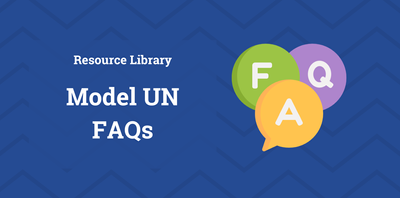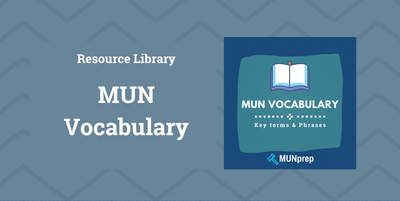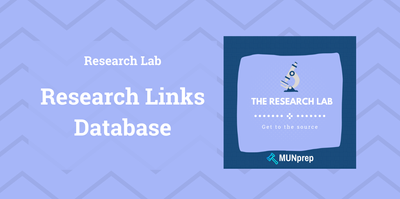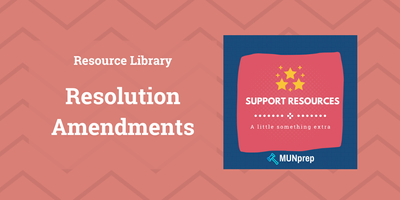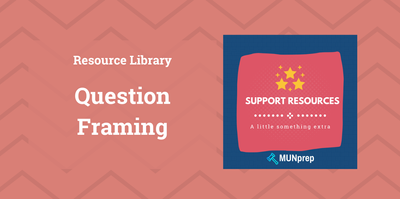Why Model UN? Exploring the Benefits of Model United Nations for Students
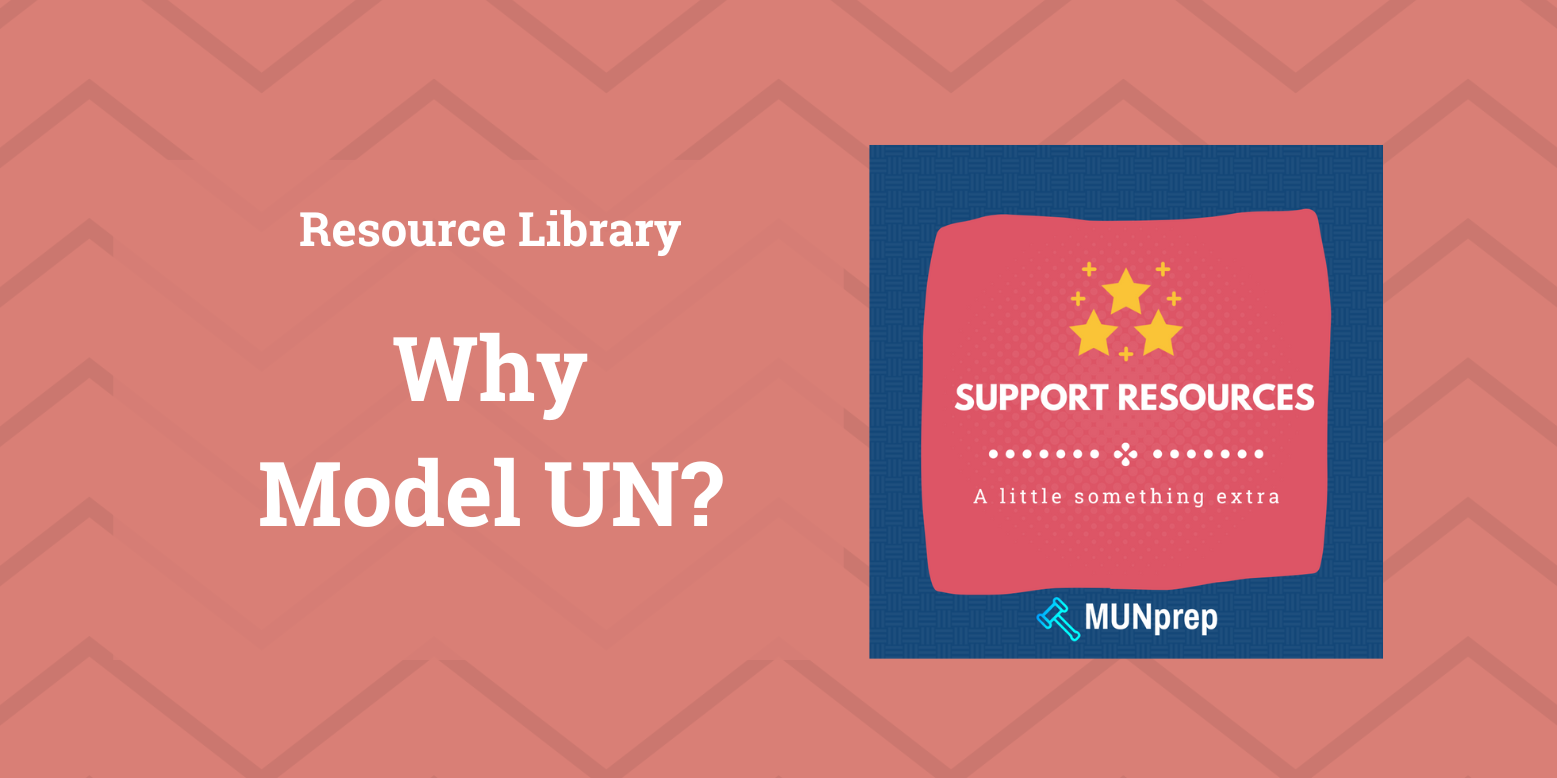
Model United Nations (MUN) is a student-led simulation of the United Nations, where participants represent different countries and debate on international issues. It’s become one of the most popular extracurricular activities for students around the world, drawing hundreds of thousands to conferences annually. But what makes Model UN so compelling? Why are students—and educators—so enthusiastic about it? Here, we’ll dive into the reasons why Model UN has such a lasting appeal, exploring its unique contributions to personal development, academic growth, and global awareness.
1. Developing Crucial Communication Skills
At its core, Model UN is all about communication. Participants—known as "delegates"—must research their assigned country’s policies, prepare arguments, and debate with others. They are constantly practicing public speaking, active listening, and even diplomatic negotiation. This helps delegates become more confident, articulate, and persuasive in any setting.
Many students find public speaking intimidating, but MUN offers a supportive environment to practice and improve. Over time, even the shyest students become comfortable delivering speeches, thinking on their feet, and articulating complex ideas. These skills don’t just benefit them in MUN but in every facet of their academic, professional, and personal lives.
2. Understanding Global Issues
In Model UN, students tackle real-world issues, ranging from climate change to global health to human rights. To effectively represent a country’s stance, delegates must thoroughly research and understand the topic. This immersion fosters a nuanced understanding of global issues and an appreciation for the complex, interconnected nature of the world.
Model UN also encourages delegates to examine issues from perspectives that may differ from their own. Representing a foreign country or a controversial stance challenges students to think critically, evaluate information objectively, and empathize with others. This knowledge can spark a passion for social justice, environmental activism, or policy-making, guiding future academic and career choices.
3. Building Leadership and Teamwork
Model UN is as much about collaboration as it is about competition. In committee sessions, delegates must negotiate, form alliances, and work together to pass resolutions. This requires effective teamwork, adaptability, and the ability to work with a wide range of personalities.
Often, students take on leadership roles in their MUN clubs, overseeing event planning, training, or managing conference logistics. They learn to manage time, delegate responsibilities, and work towards common goals under pressure. These skills translate well into college, jobs, and other leadership roles, preparing students to take on real-world challenges.
4. Boosting Academic Skills
Research, critical thinking, and writing are core components of Model UN. Students dive into detailed policy papers, form arguments based on evidence, and refine their written communication in position papers and resolutions. For many, the skills they develop in Model UN lead to improvements in their academic performance.
The activity also encourages intellectual curiosity. Students often find themselves exploring new areas of international relations, economics, or science that aren’t covered in school curricula. This curiosity builds a habit of independent learning that will serve them well in college and beyond.
5. Expanding Networks and Making Lifelong Friends
Model UN conferences bring together students from diverse backgrounds and different parts of the world. This provides a rare opportunity to meet peers who share similar interests and ambitions, as well as those with entirely different perspectives. Delegates often form close bonds with fellow MUN participants, both from their own school and from other delegations.
These friendships often extend beyond high school or college, creating a global network of like-minded, engaged individuals. For students interested in fields such as law, international relations, or public policy, the MUN community can become a valuable network that supports them throughout their careers.
6. Cultivating Confidence and Independence
Model UN is a journey, one that requires students to grow both personally and intellectually. Students learn to advocate for themselves and defend their ideas, as well as to think critically about the world. For many, this is one of their first experiences tackling serious, real-world problems, giving them a sense of empowerment and agency.
Students also learn resilience in MUN. Whether through a challenging debate, a complicated negotiation, or a surprising committee result, they learn to handle setbacks and emerge stronger. This resilience will serve them well, both academically and personally, giving them the confidence to take on future challenges.
7. Opening Doors to Future Opportunities
Model UN is more than just an extracurricular activity; it can be a launchpad for academic and career opportunities. Colleges and universities value Model UN experience, recognizing it as a sign of leadership, communication skills, and intellectual engagement. MUN conferences are also excellent for building resumes, demonstrating to future employers that a student is proactive, well-informed, and capable of working in a team.
For students with an interest in international relations, political science, or law, Model UN provides exposure to topics, mentors, and connections that can directly inform their future career paths. Many alumni go on to successful careers in diplomacy, government, law, and non-profits, inspired by their MUN experiences.
8. Fostering a Lifelong Commitment to Global Citizenship
Perhaps one of the most profound effects of Model UN is the way it cultivates a sense of global citizenship. Students who participate in MUN often gain a heightened awareness of global issues and a commitment to making a positive impact. They develop a strong sense of empathy, responsibility, and a desire to work towards a better world, whether through policy-making, activism, or community engagement.
Model UN encourages students to see themselves as part of a global community. By fostering cross-cultural understanding, empathy, and responsibility, MUN inspires young people to take action on the issues that matter to them and to recognize their power to effect change on both local and global scales.
Conclusion: Why Model UN?
Model UN offers an unparalleled experience for students, combining academic rigor with real-world skills, personal growth, and community building. For those who are interested in international issues, public speaking, or simply looking for a challenge, Model UN can be a transformative experience. It empowers young people to engage deeply with the world, fostering both individual development and a sense of shared purpose.
In a world that’s increasingly interconnected, the lessons learned in Model UN are more valuable than ever. So, if you’re considering joining Model UN, or encouraging others to do so, the answer is simple: Why Model UN? Because it’s an investment in knowledge, skills, and perspectives that will last a lifetime.

